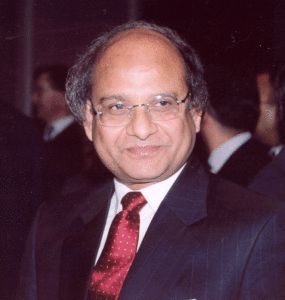“Uncertainty about policy will continue to linger until the next budget is unveiled” – Dr Ashfaque Hasan Khan
By Newsline Admin | Cover Story | Published 6 years ago

On January 23, the finance minister presented a package aimed at creating a business-friendly environment, by lowering the cost of doing business in Pakistan. It should not be called a mini-budget but an economic revival programme that will facilitate businesses, the corporate sector, industries and agriculture. I wish that this package had been announced earlier and the government had not wasted its precious initial months.
The PTI government took one positive step soon after assuming power and that was to eliminate the culture of SROs (Statutory Regulatory Orders), which served as the breeding-ground of corruption. According to the tax reforms undertaken by this government, now all taxes will be part of the finance bill and will come to the Parliament.
Under the reforms, the Federal Bureau of Revenue (FBR) will now only have to focus on tax administration and collection, while the tax policy will come under another body, one that is yet to be announced. The FBR will no longer be able to issue the infamous SROs, which used to render the budget-making exercise meaningless.
In the latest package, there are no numbers – only details of a reform programme has been shared. The government has tried to rejuvenate business, lower its costs, create a business-friendly environment, boost the agriculture, SME and housing sectors, by encouraging banks to give them loans. All this is positive and no business concern has raised any objection to these measures. Pakistan’s export-oriented businesses are likely to benefit by these measures.
However, Pakistan’s biggest challenge is managing the balance of payment crisis, which has been temporarily resolved with the help of friendly countries. But Pakistan will have to take measures to address this issue on its own – and the sooner we do it, the better. One of the key reasons of the balance of payment crisis is the huge trade deficit, which needs to be addressed in the near term by slashing imports by at least $ 3–4 billion.
We won’t be able to cut imports just by raising duty on the import of 1800 cc cars, as those who can afford big cars, can pay higher duties as well. In this package, no meaningful step has been taken to compress imports. The government should have banned the import of cars, phones and all the other luxury items for a year or two, until we manage to boost exports and introduce other reforms, all of which will take time to make an impact.
As preparations for the new budget begin in February, and consultations with stakeholders are held in March, most businesses will remain in a wait-and-see mode. Therefore, the new package will not be able to trigger the kind of economic activity desired by the government. The element of uncertainty about the government’s policy direction will continue to linger until the next fiscal year’s budget is unveiled.
Another uncertainty gripping the market is about whether the government will go for the IMF programme and if so, under what conditions? The sooner this matter gets decided, the better for the country.
Dr Ashfaque Hasan Khan Dean and Director, NUST Business School and Member, Economic Advisory Council


